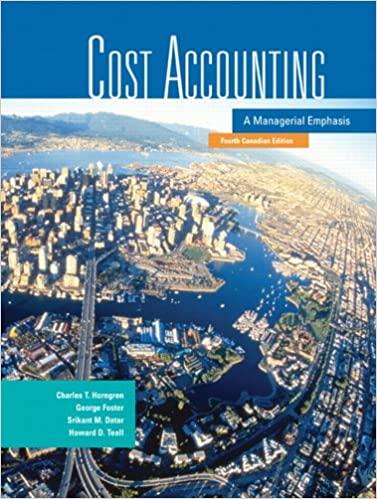Risk-sharing, incentives, benchmarking, multiple tasks. The Dexter Division of AMCO sells car batteries. AMCOs corporate management gives
Question:
Risk-sharing, incentives, benchmarking, multiple tasks. The Dexter Division of AMCO sells car batteries. AMCO’s corporate management gives Dexter management considerable operating and investment autonomy in running the division. AMCO is considering how it should compensate Jim Marks, the general manager of the Dexter Division. Proposal 1 calls for paying Marks a fixed salary. Proposal 2 calls for paying Marks no salary and compensating him only on the basis of the division’s ROI
(calculated on the basis of operating income before any bonus payments). Proposal 3 calls for paying Marks some salary and some bonus based on ROI. Assume that Marks does not like bearing risk.
Required 1.
a. Evaluate each ofthe three proposals, specifying the advantages and disadvantages of each,
b. Suppose that AMCO competes against Tiara Industries in the car battery business.
Tiara is roughly the same size and operates in a business environment that is very simi¬
lar to Dexter’s. The senior management of AMCO is considering evaluating Marks on the basis of Dexter’s ROI minus Tiara’s ROI. Marks complains that this approach is unfair because the performance of another firm, over which he has no control, is included in his performance evaluation measure. Is Marks’s complaint valid? Wby or why not?
2. Now suppose that Marks has no authority for making capital investment decisions.
Corporate management makes these decisions. Is return on investment a good perform¬
ance measure to use to evaluate Marks? Is return on investment a good measure to evalu¬
ate the economic viability of the Dexter Division? Explain.
3. Dexter’s salespersons are responsible for selling and providing customer service and support. Sales are easy to measure. Although customer service is very important to 1 . "-Dexter in the long run, it has not yet implemented customer service measures. Marks wants to compensate his sales force only on the basis ofsales commissions paid for each unit of product sold. He cites two advantages to this plan:
(a) it creates very strong incentives for the sales force to work hard and
(b) the company pays salespersons only when the company itself is earning revenues and has cash. Do you like his plan? Why or why not?
PROBLEMS
Step by Step Answer:

Cost Accounting A Managerial Emphasis
ISBN: 9780131971905
4th Canadian Edition
Authors: Charles T. Horngren, George Foster, Srikant M. Datar, Howard D. Teall





